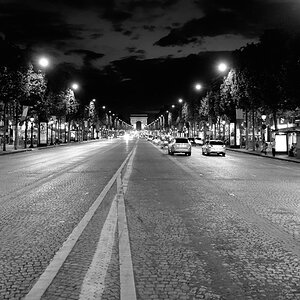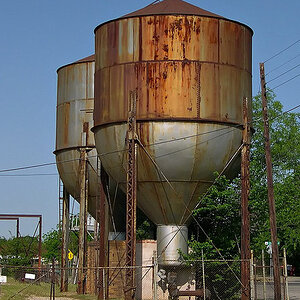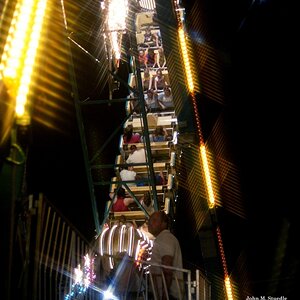unpopular
Been spending a lot of time on here!
The Internet is killing brick and mortar camera stores. Raise your hand if you bought your last camera from a walkin camera store.
Joe
So? Why do I want brick and mortar to stay around? For cameras, they seem obsolete. Brick and mortar benefits are instant possession and ability to try stuff out. Which is great for purchasing meat or clothing. But for cameras, I don't have any reason to need one right now versus two days from now, and return policies are so good that trying out to test for defects is of minor importance.
And the brick and mortar charges at LEAST 25% more on everything where I am, and for smaller items, as much as 200-300% more. The exact same filter I was looking at the other day was $20 on Amazon, and $75 at my local camera store?? Why pay exorbitantly more for no apparent benefit?
So what's left to make me care?
* Jobs? Propping up obsolete technology for the sake of jobs is bad policy. Should we have avoided switching to lightbulbs indefinitely because we were worried about the candlemakers' jobs?
* The environment? A fine argument if the brick and mortar store sells locally produced things, but not a valid argument when it's all coming from Japan either way, like cameras. It's using up 80 bazillion gallons of fuel versus 82 bazillion gallons of fuel.
* Local taxes? The better solution to this is simply to pass a non-stupid sales tax law that requires online retailers to require local sales tax.
* ??
I hate waiting for little pieces like sync cords or tripod plates.
The store here also develops film a sells it. Convenience is nice
As an amateur, I will gladly wait four weeks for a $3.00 sync cord to arrive from China, than having to pay $25 for the exact same cord from the exact same factory from Mom and Pop. Buying local is a nice sentiment, but I'm hardly obligated, especially when the price differences are so significant.










![[No title]](/data/xfmg/thumbnail/31/31740-83040d547efdbb1f87736f24d2e9985c.jpg?1619734985)
![[No title]](/data/xfmg/thumbnail/31/31045-f4eb92f5d5eaca89ec5966763eea2dae.jpg?1619734585)

